Georg Christoph Lichtenberg
Appearance
(Redirected from Lichtenberg)
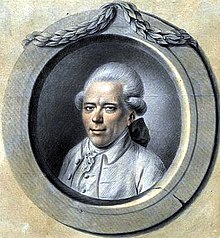
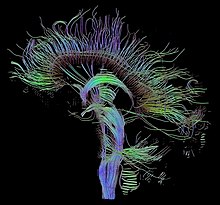
Georg Christoph Lichtenberg (1 July 1742 – 24 February 1799) was a German scientist, satirist, and philosopher.
Quotes
[edit]
- All mathematical laws which we find in Nature are always suspect to me, in spite of their beauty. They give me no pleasure. They are merely auxiliaries. At close range it is all not true.
- As quoted in Lichtenberg : A Doctrine of Scattered Occasions (1959) by Joseph Peter Stern, p. 84
- Where the frontier of science once was is now the centre.
- As quoted in A Dictionary of Scientific Quotations (1991) edited by Alan Lindsay Mackay, p. 153
- A book which, above all others in the world, should be forbidden, is a catalogue of forbidden books.
- As quoted in A Dictionary of Scientific Quotations (1991) edited by Alan Lindsay Mackay, p. 153
- A good means to discovery is to take away certain parts of a system to find out how the rest behaves.
- As quoted in A Dictionary of Scientific Quotations (1991) edited by Alan Lindsay Mackay, p. 154
- The motives that lead us to do anything might be arranged like the thirty-two winds and might be given names on the same pattern: for instance, "bread-bread-fame" or "fame-fame-bread."
- Referring to a diagrammatic "Compass of Motives", as quoted in Der Witz und seine Beziehung zum Unbewussten [Jokes and Their Relation to the Unconscious] (1905) by Sigmund Freud, as translated by James Strachey (1960), p. 101; also quoted by Freud in an open letter to Albert Einstein, Why War? (1933).
- Variant translation: The motives that lead us to do anything might be arranged like the thirty-two winds and might be given names on the same pattern: for instance, "food-food-fame" or "fame-fame-food".
- So wie wir ein Paar Hosen verwachsen, so verwachsen wir Umgang, Bibliotheken, Grundsätze und dergleichen, zuweilen, ehe sie abgenutzt sind und zuweilen, welches der schlimmste Fall ist, ehe wir neue haben.
- Translation: Just as we outgrow a pair of trousers, we outgrow acquaintances, libraries, principles, etc., at times before they're worn out and at times—and this is the worst of all—before we have new ones.
- Gedanken, Satiren, Fragmente (Thoughts, Satires, Fragments), Volume 1 (1907)
Aphorisms (1765-1799)
[edit]
- This section was begun primarily with translations by R. J. Hollingdale, augmented by other sources, including Selected Writings of Georg C. Lichtenberg (1893) edited by Adolf Wilbrandt.
Notebook A (1765-1770)
[edit]

- One might call habit a moral friction: something that prevents the mind from gliding over things but connects it with them and makes it hard for it to free itself from them.
- A 10
- It is hardly to be believed how spiritual reflections when mixed with a little physics can hold people's attention and give them a livelier idea of God than do the often ill-applied examples of his wrath.
- A 11
- Food probably has a very great influence on the condition of men. Wine exercises a more visible influence, food does it more slowly but perhaps just as surely. Who knows if a well-prepared soup was not responsible for the pneumatic pump or a poor one for a war?
- A 14
- It is we who are the measure of what is strange and miraculous: if we sought a universal measure the strange and miraculous would not occur and all things would be equal.
- A 26
- Cautiousness in judgment is nowadays to be recommended to each and every one: if we gained only one incontestable truth every ten years from each of our philosophical writers the harvest we reaped would be sufficient. … To grow wiser means to learn to know better and better the faults to which this instrument with which we feel and judge can be subject.
- A 38
- Prejudices are so to speak the mechanical instincts of men: through their prejudices they do without any effort many things they would find too difficult to think through to the point of resolving to do them.
- A 58
Notebook B (1768-1771)
[edit]

- We can see nothing whatever of the soul unless it is visible in the expression of the countenance; one might call the faces at a large assembly of people a history of the human soul written in a kind of Chinese ideograms.
- B 11
- Every man has his moral backside which he refrains from showing unless he has to and keeps covered as long as possible with the trousers of decorum.
- B 12
- Variant translation: Everyone has a moral backside, which he does not show except in case of need and which he covers as long as possible with the breeches of respectability.
- As quoted in Der Witz und seine Beziehung zum Unbewussten [Jokes and Their Relation to the Unconscious] (1905) by Sigmund Freud, as translated by James Strachey (1960), p. 100
- There are two ways of extending life: firstly by moving the two points "born" and "died" farther away from one another... The other method is to go more slowly and leave the two points wherever God wills they should be, and this method is for the philosophers.
- B 22
- I have written a good number of drafts and small reflections. They are not waiting for the last touch but for the sunlight to wake them up.
- B 29
- He was then in his fifty-fourth year, when even in the case of poets reason and passion begin to discuss a peace treaty and usually conclude it not very long afterwards.
- B 30
- As the few adepts in such things well know, universal morality is to be found in little everyday penny-events just as much as in great ones. There is so much goodness and ingenuity in a raindrop that an apothecary wouldn't let it go for less than half-a-crown.
- B 33
- Here take back the stuff that I am, nature, knead it back into the dough of being, make of me a bush, a cloud, whatever you will, even a man, only no longer make me me.
- B 37 "Speech of a suicide composed shortly before the act."
- People often become scholars for the same reason they become soldiers: simply because they are unfit for any other station. Their right hand has to earn them a livelihood; one might say they lie down like bears in winter and seek sustenance from their paws.
- B 41
- If an angel were ever to tell us anything of his philosophy I believe many propositions would sound like 2 times 2 equals 13.
- B 44
- We often have need of a profound philosophy to restore to our feelings their original state of innocence, to find our way out of the rubble of things alien to us, to begin to feel for ourselves and to speak ourselves, and I might almost say to exist ourselves. Even if my philosophy does not extend to discovering anything new, it does nevertheless possess the courage to regard as questionable what has long been thought true.
- B 49
- What concerns me alone I only think, what concerns my friends I tell them, what can be of interest to only a limited public I write, and what the world ought to know is printed...
- B 52
Notebook C (1772-1773)
[edit]

- Do not commence your exercises in philosophy in those regions where an error can deliver you over to the executioner.
- C 16
- Astronomy is perhaps the science whose discoveries owe least to chance, in which human understanding appears in its whole magnitude, and through which man can best learn how small he is.
- C 23
- Erudition can produce foliage without bearing fruit.
- C 26
- Even truth needs to be clad in new garments if it is to appeal to a new age.
- C 33
- Once the good man was dead, one wore his hat and another his sword as he had worn them, a third had himself barbered as he had, a fourth walked as he did, but the honest man that he was — nobody any longer wanted to be that.
- C 36
- The pleasures of the imagination are as it were only drawings and models which are played with by poor people who cannot afford the real thing.
- C 38
- If people should ever start to do only what is necessary millions would die of hunger.
- C 54
- Variant translation: If all mankind were suddenly to practice honesty, many thousands of people would be sure to starve.
Notebook D (1773-1775)
[edit]

- Once we know our weaknesses they cease to do us any harm.
- D 5
- Many things about our bodies would not seem to us so filthy and obscene if we did not have the idea of nobility in our heads.
- D 6
- The journalists have constructed for themselves a little wooden chapel, which they also call the Temple of Fame, in which they put up and take down portraits all day long and make such a hammering you can't hear yourself speak.
- D 20
- Nowadays three witty turns of phrase and a lie make a writer.
- D 25
- That man is the noblest creature may also be inferred from the fact that no other creature has yet contested this claim.
- D 58
- The proof that man is the noblest of all creatures is that no other creature has ever denied it.
- What makes our poetry so contemptible nowadays is its paucity of ideas. If you want to be read, invent. Who the Devil wouldn't like to read something new?
- D 62
- When a book and a head collide and a hollow sound is heard, must it always have come from the book?
- D 66
- There are people who possess not so much genius as a certain talent for perceiving the desires of the century, or even of the decade, before it has done so itself.
- D 70
- Cultivate that kind of knowledge which enables us to discover for ourselves in case of need that which others have to read or be told of.
- D 89
- To do the opposite of something is also a form of imitation, namely an imitation of its opposite.
- D 96
- Variant translation: To do just the opposite is also a form of imitation.
- We are obliged to regard many of our original minds as crazy — at least until we have become as clever as they are.
- D 97
- Body and soul: a horse harnessed beside an ox.
- D 103
Notebook E (1775 - 1776)
[edit]


- If it were true what in the end would be gained? Nothing but another truth. Is this such a mighty advantage? We have enough old truths still to digest, and even these we would be quite unable to endure if we did not sometimes flavor them with lies.
- E 10
- Nothing can contribute more to peace of soul than the lack of any opinion whatever.
- E 11
- Variant translations: Nothing is more conducive to peace of mind than not having any opinion at all.
Nothing is more conducive to peace of mind than not having any opinions at all.
Nothing contributes more to a person's peace of mind than having no opinions at all.
- A handful of soldiers is always better than a mouthful of arguments.
- E 19
- Courage, garrulousness and the mob are on our side. What more do we want?
- E 32
- Be wary of passing the judgment: obscure. To find something obscure poses no difficulty: elephants and poodles find many things obscure.
- E 36
- A book is a mirror: if an ape looks into it an apostle is hardly likely to look out. We have no words for speaking of wisdom to the stupid. He who understands the wise is wise already.
- E 49
- Variant translations of first portion: A book is a mirror: If an ape peers into it, you can't expect an apostle to look out.
- A book is a mirror: If an ass peers into it, you can't expect an apostle to look out. — this has actually been the most commonly cited form, but it is based on either a loose non-literal translation or a mistranslation of the German original: Ein Buch ist Spiegel, aus dem kein Apostel herausgucken kann, wenn ein Affe hineinguckt.
- As I take up my pen I feel myself so full, so equal to my subject, and see my book so clearly before me in embryo, I would almost like to try to say it all in a single word.
- E 52
- The great rule: If the little bit you have is nothing special in itself, at least find a way of saying it that is a little bit special.
- E 55
- There are people who believe everything is sane and sensible that is done with a solemn face. … It is no great art to say something briefly when, like Tacitus, one has something to say; when one has nothing to say, however, and none the less writes a whole book and makes truth … into a liar — that I call an achievement.
- E 59
- Variant translation: There are people who think that everything one does with a serious face is sensible...
- Do we write books so that they shall merely be read? Don't we also write them for employment in the household? For one that is read from start to finish, thousands are leafed through, other thousands lie motionless, others are jammed against mouseholes, thrown at rats, others are stood on, sat on, drummed on, have gingerbread baked on them or are used to light pipes.
- E 65
- Good taste is either that which agrees with my taste or that which subjects itself to the rule of reason. From this we can see how useful it is to employ reason in seeking out the laws of taste.
- E 69
- With a pen in my hand I have successfully stormed bulwarks from which others armed with sword and excommunication have been repulsed.
- E 76
- We do not think good metaphors are anything very important, but I think that a good metaphor is something even the police should keep an eye on...
- E 91
- Variant translation: A good metaphor is something even the police should keep an eye on.
- What I do not like about our definitions of genius is that there is in them nothing of the day of judgment, nothing of resounding through eternity and nothing of the footsteps of the Almighty.
- E 92
- A on his lips and not-A in his heart.
- E 95
Notebook F (1776-1779)
[edit]


- If it is permissible to write plays that are not intended to be seen, I should like to see who can prevent me from writing a book no one can read.
- F 1
- The most heated defenders of a science, who cannot endure the slightest sneer at it, are commonly those who have not made very much progress in it and are secretly aware of this defect.
- F 8
- If countries were named after the words you first hear when you go there, England would have to be called Damn It.
- F 33
- If you are going to build something in the air it is always better to build castles than houses of cards.
- F 39
- The Greeks possessed a knowledge of human nature we seem hardly able to attain to without passing through the strengthening hibernation of a new barbarism.
- F 44
- We say that someone occupies an official position, whereas it is the official position that occupies him.
- F 47
- Man can acquire accomplishments or he can become an animal, whichever he wants. God makes the animals, man makes himself.
- F 49
- Doubt must be no more than vigilance, otherwise it can become dangerous.
- F 53
- I am convinced we do not only love ourselves in others but hate ourselves in others too.
- F 54
- A clever child brought up with a foolish one can itself become foolish. Man is so perfectable and corruptible he can become a fool through good sense.
- F 69
- Ideas too are a life and a world.
- F 70
- I have remarked very clearly that I am often of one opinion when I am lying down and of another when I am standing up.
- F 73
- Man is always partial and is quite right to be. Even impartiality is partial.
- F 78
- There is no more important rule of conduct in the world than this: attach yourself as much as you can to people who are abler than you and yet not so very different that you cannot understand them.
- F 81
- If we make a couple of discoveries here and there we need not believe things will go on like this for ever.... Just as we hit water when we dig in the earth, so we discover the incomprehensible sooner or later.
- F 82
- There exists a species of transcendental ventriloquism by means of which men can be made to believe that something said on earth comes from Heaven.
- F 84
- Just as the performance of the vilest and most wicked deeds requires spirit and talent, so even the greatest demand a certain insensitivity which under other circumstances we would call stupidity.
- F 87
- Much can be inferred about a man from his mistress: in her one beholds his weaknesses and his dreams.
- F 88
- Sickness is mankind's greatest defect.
- F 100
- The most successful tempters and thus the most dangerous are the deluded deluders.
- F 120
- What is the good of drawing conclusions from experience? I don't deny we sometimes draw the right conclusions, but don't we just as often draw the wrong ones?
- F 123
- Much reading has brought upon us a learned barbarism.
- F 144
- Affectation is a very good word when someone does not wish to confess to what he would none the less like to believe of himself.
- F 149
- It is certainly not a matter of indifference whether I learn something without effort or finally arrive at it myself through my system of thought. In the latter case everything has roots, in the former it is merely superficial.
- F154
- When an acquaintance goes by I often step back from my window, not so much to spare him the effort of acknowledging me as to spare myself the embarrassment of seeing that he has not done so.
- F 155
- You believe that I run after the strange because I do not know the beautiful; no, it is because you do not know the beautiful that I seek the strange.
- F160
Notebook G (1779-1783)
[edit]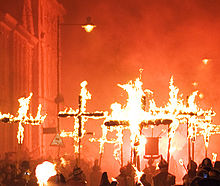
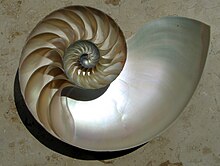
- People nowadays have such high hopes of America and the political conditions obtaining there that one might say the desires, at least the secret desires, of all enlightened Europeans are deflected to the west, like our magnetic needles.
- G 2
- It is almost impossible to bear the torch of truth through a crowd without singeing somebody’s beard.
- G 4
- Variant translations:
It is almost impossible to carry the torch of wisdom through a crowd without singeing someone's beard.
It is virtually impossible to carry the torch of truth through a crowd, without singeing someone's beard
- What is called an acute knowledge of human nature is mostly nothing but the observer's own weaknesses reflected back from others.
- G 7
- He who knows himself properly can very soon learn to know all other men. It is all reflection.
- G 8
- There are very many people who read simply to prevent themselves from thinking.
- G 29
- To err is human also in so far as animals seldom or never err, or at least only the cleverest of them do so.
- G 30
- Popular presentation today is all too often that which puts the mob in a position to talk about something without understanding it.
- G 32
- The American who first discovered Columbus made a bad discovery.
- G 42
- The human tendency to regard little things as important has produced very many great things.
- G 46
- Variant translation: The inclination of people to consider small things as important has produced many great things.
Notebook H (1784-1788)
[edit]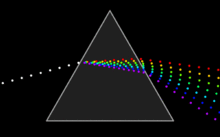
- The noble simplicity in the works of nature only too often originates in the noble shortsightedness of him who observes it.
- H 1
- We accumulate our opinions at an age when our understanding is at its weakest.
- H 4
- The most dangerous untruths are truths moderately distorted.
- H 7
- Variant translation: The most dangerous untruths are truths slightly distorted.
- He who is enamored of himself will at least have the advantage of being inconvenienced by few rivals.
- H 10
- Variant translation: He who is in love with himself has at least this advantage — he won't encounter many rivals.
- Virtue by premeditation isn't worth much.
- H 13
- With prophecies the commentator is often a more important man than the prophet.
- H 23
- Rational free spirits are the light brigade who go on ahead and reconnoitre the ground which the heavy brigade of the orthodox will eventually occupy.
- H 36
Notebook J (1789)
[edit]


- A schoolteacher or professor cannot educate individuals, he educates only species.
- J 10
- A great speech is easy to learn by heart and a great poem even easier. How hard it would be to memorize as many words linked together senselessly, or a speech in a foreign tongue! Sense and understanding thus come to the aid of memory. Sense is order and order is in the last resort conformity with our nature. When we speak rationally we are only speaking in accordance with the nature of our being. That is why we devise genera and species in the case of plants and animals. The hypotheses we make belong here too: we are obliged to have them because otherwise we would unable to retain things... The question is, however, whether everything is legible to us. Certainly experiment and reflection enable us to introduce a significance into what is not legible, either to us or at all: thus we see faces or landscapes in the sand, though they are certainly not there. The introducion of symmetries belongs here too, silhouettes in inkblots, etc. Likewise the gradation we establish in the order of creatures: all this is not in the things but in us. In general we cannot remember too often that when we observe nature, and especially the ordering of nature, it is always ourselves alone we are observing.
- J 65
- The fly that doesn't want to be swatted is most secure when it lights on the fly-swatter.
- J 70
- Variant translation: The fly that does not want to be swatted is safest if it sits on the fly-swat.
- Delight at having understood a very abstract and obscure system leads most people to believe in the truth of what it demonstrates.
- J 77
- One cannot demand of a scholar that he show himself a scholar everywhere in society, but the whole tenor of his behavior must none the less betray the thinker, he must always be instructive, his way of judging a thing must even in the smallest matters be such that people can see what it will amount to when, quietly and self-collected, he puts this power to scholarly use.
- J 85
- The most perfect ape cannot draw an ape; only man can do that; but, likewise, only man regards the ability to do this as a sign of superiority.
- J 115
- It is a question whether, when we break a murderer on the wheel, we do not fall into the error a child makes when it hits the chair it has bumped into.
- J 146
- It is said that truth comes from the mouths of fools and children: I wish every good mind which feels an inclination for satire would reflect that the finest satirist always has something of both in him.
- J 157
- Man is a masterpiece of creation if for no other reason than that, all the weight of evidence for determinism notwithstanding, he believes he has free will.
- J 249
- One has to do something new in order to see something new.
- J 1770
Notebook K (1789-1793)
[edit]

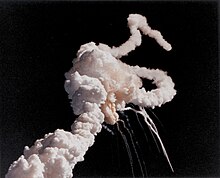

- Nothing makes one old so quickly as the ever-present thought that one is growing older.
- K 13
- Man is to be found in reason, God in the passions.
- K 21
- The sure conviction that we could if we wanted to is the reason so many good minds are idle.
- K 27
- To be content with life — or to live merrily, rather — all that is required is that we bestow on all things only a fleeting, superficial glance; the more thoughtful we become the more earnest we grow.
- K 29
- It is almost everywhere the case that soon after it is begotten the greater part of human wisdom is laid to rest in repositories.
- K 37
- Before one blames, one should always find out whether one cannot excuse. To discover little faults has been always the particularity of such brains that are a little or not at all above the average. The superior ones keep quiet or say something against the whole and the great minds transform without blaming.
- K 39
- Variant translation: Before we blame we should first see whether we cannot excuse.
- Man loves company — even if it is only that of a small burning candle.
- K 40
- He who says he hates every kind of flattery, and says it in earnest, certainly does not yet know every kind of flattery.
- K 41
- To receive applause for works which do not demand all our powers hinders our advance towards a perfecting of our spirit. It usually means that thereafter we stand still.
- K 42
- If all else fails, the character of a man can be recognized by nothing so surely as by a jest which he takes badly.
- K 46
- Variant translation: A person reveals his character by nothing so clearly as the joke he resents.
- It is in the gift for employing all the vicissitudes of life to one's own advantage and to that of one's craft that a large part of genius consists.
- K 48
- One is rarely an impulsive innovator after the age of sixty, but one can still be a very fine orderly and inventive thinker. One rarely procreates children at that age, but one is all the more skilled at educating those who have already been procreated, and education is procreation of another kind.
- K 51
- So-called professional mathematicians have, in their reliance on the relative incapacity of the rest of mankind, acquired for themselves a reputation for profundity very similar to the reputation for sanctity possessed by theologians.
- K 52
- First we have to believe, and then we believe.
- K 55
- The greatest events occur without intention playing any part in them; chance makes good mistakes and undoes the most carefully planned undertaking. The world's greatest events are not produced, they happen.
- K 68
- There is no greater impediment to progress in the sciences than the desire to see it take place too quickly.
- K 72
Notebook L (1793-1796)
[edit]- There were honest people long before there were Christians and there are, God be praised, still honest people where there are no Christians. It could therefore easily be possible that people are Christians because true Christianity corresponds to what they would have been even if Christianity did not exist.
- L 16
- If this is philosophy it is at any rate a philosophy that is not in its right mind.
- L 23
- Those who have racked their brains to discover new proofs have perhaps been induced to do so by a compulsion they could not quite explain to themselves. Instead of giving us their new proofs they should have explained to us the motivation that constrained them to search for them.
- L24
- The "second sight" possessed by the Highlanders in Scotland is actually a foreknowledge of future events. I believe they possess this gift because they don't wear trousers... That is also why in all countries women are more prone to utter prophecies.
- L 26
- Of all the inventions of man I doubt whether any was more easily accomplished than that of a Heaven.
- L 34
- Actual aristocracy cannot be abolished by any law: all the law can do is decree how it is to be imparted and who is to acquire it.
- L 44
- What most clearly characterizes true freedom and its true employment is its misemployment.
- L 49
- Reason now gazes above the realm of the dark but warm feelings as the Alpine peaks do above the clouds. They behold the sun more clearly and distinctly, but they are cold and unfruitful.
- L 50
- He was always smoothing and polishing himself, and in the end he became blunt before he was sharp.
- L 70
- Bei den meisten Menschen gründet sich der unglaube in einer Sache auf blinden Glauben in einer anderen.[1]
- Translation: With most men, unbelief in one thing springs from blind belief in another.
- L 81
- Variant translation: With most people disbelief in a thing is founded on a blind belief in some other thing.
- I believe that man is in the last resort so free a being that his right to be what he believes himself to be cannot be contested.
- L 98
Quotes about Lichtenberg
[edit]- Sorted alphabetically by author or source


- Perhaps he was even more remarkable as a psychologist than as a physicist.
- Sigmund Freud, in an open letter to Albert Einstein, "Why War" (1933), as translated in Classical Readings in Culture and Civilization (1998) edited by Stephen Mennell and John F. Rundell
- We may use Lichtenberg’s writings as the most wonderful dowsing rod: wherever he makes a joke, there a problem lies hidden.
- Johann Wolfgang von Goethe, as quoted in Lives of the Mind: The Use and Abuse of Intelligence from Hegel to Wodehouse (2002), p. 316
- God created man in His own image, and in requital man created God in his, says Lichtenberg, and it is true that a man’s conception of God is essentially determined by the kind of man he is. So it is that I conceive of God as one who approves in a calculated vigilance, I believe that he approves of intrigues, and what I have read in the sacred books of the Old Testament is not of a sort to dishearten me. The Old Testament furnishes examples abundantly of a shrewdness which is nevertheless well pleasing to God, and that at a later period Christ said to His disciples, “These things I said not unto you from the beginning … I have yet many things to say unto you, but ye cannot bear them now” – so here is a teleological suspension of the ethical rule of telling the whole truth.
- Soren Kierkegaard, in Quidam’s Diary from Stages on Life’s Way (1845), Lowrie translation (1967), p. 217-218
- He is not a household name. He is something rarer: a name savored by household names. Goethe, who corresponded with Lichtenberg, admired him greatly (even though Lichtenberg disputed his theory of color).
- Roger Kimball, in Lives of the Mind: The Use and Abuse of Intelligence from Hegel to Wodehouse (2002), p. 316
- Lichtenberg digs deeper than anyone... but he does not come up again. Only he hears him who digs deep himself.
- Karl Kraus, in Spruche und Widerspruche (1924), p. 193; as quoted in Lichtenberg : A Doctrine of Scattered Occasions (1959) by Joseph Peter Stern, p. 114
- Variant translations:
- Lichtenberg goes deeper than any other, but he does not come up again. He speaks under the Earth. He is only heard by those who themselves dig deep.
- As quoted in The Last Days of Mankind : Karl Kraus and his Vienna (1967) by Frank Field, p. 196
- Lichtenberg digs deeper than anyone... He speaks from the subterranean depths. Only he who himself digs deep hears him.
- As quoted in Lives of the Mind: The Use and Abuse of Intelligence from Hegel to Wodehouse (2002) by Roger Kimball, p. 316
External links
[edit]- Brief biography
- Book review: G. C. Lichtenberg: a "spy on humanity"
- Book review: Aphorisms by Georg Christoph Lichtenberg
- Georg Christoph Lichtenberg : Experimental Physics from the Spirit of Aphorism (PDF)
- German Wikipedia
- Texts at the German Projekt Gutenberg
- What are Lichtenberg Figures and how are they created?
- NASA article on lightning's effects on humans
- Lichtenberg Figures, Glass and Gemstones
- 1927 General Electric Review Article about Lichtenberg Figures
- About Electricity, Lightning, and Lichtenberg Figures
- Dielectric Breakdown Model (DBM)
- Mathematical Description of Diffusion-Limited Aggregation



